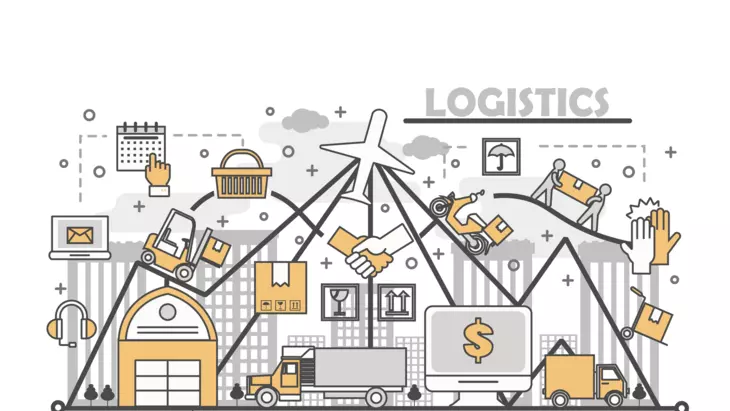Transpordi hind on sõnapaar, mis on tuttav sisuliselt igale ettevõttele ja ettevõtjale juba aegade algusest.
Oma loomult peaks see ju lihtne lugu olema. Kaup on vaja vedada punktist A punkti B ja on vaja teada palju see maksab!
Paraku on selles valdkonnas mitmeid olukordi, kus veoettevõtted soovivad oma riisikot hajutada ning toovad seetõttu mängu ka mitmeid muutujaid hinnastamisel (kütuselisad, teemaksud, tööjõumaksud, ummikumaksud, teemaksud, covid-19 lisatasud jne).
Etteruttavalt - tänases maailmas on see juba lihtne.
Registreeri Cargosoni konto ning vaata ja võrdle momentaalselt vedajate avalikke online hindu või küsi hinda valitud vedajalt ühe nupuvajutusega!
VAATA VÕI KÜSI VEOHINDA ERINEVATELT VEDAJATELT
LOO CARGOSONI KONTO
Oma loomult peaks see ju lihtne lugu olema. Kaup on vaja vedada punktist A punkti B ja on vaja teada palju see maksab!
Paraku on selles valdkonnas mitmeid olukordi, kus veoettevõtted soovivad oma riisikot hajutada ning toovad seetõttu mängu ka mitmeid muutujaid hinnastamisel (kütuselisad, teemaksud, tööjõumaksud, ummikumaksud, teemaksud, covid-19 lisatasud jne).
Etteruttavalt - tänases maailmas on see juba lihtne.
Registreeri Cargosoni konto ning vaata ja võrdle momentaalselt vedajate avalikke online hindu või küsi hinda valitud vedajalt ühe nupuvajutusega!
VAATA VÕI KÜSI VEOHINDA ERINEVATELT VEDAJATELT
Millest koosneb transpordi hind?
Levinud arvamuse kohaselt arvutatakse veohind erinevatest kulupõhistest komponentidest (kütuse hind, autojuhi palk, veoki maksumus jne.).
Mingil määral on selles tõde, sest veohinna kujunemisel mängivad tõesti rolli mitmed asjaolud. Erinevad kulukomponendid, suunapõhine ekspordi-impordi tasakaal, veoringide olemasolu, otseliiklus ja partnervõrgustik ent praktikas kujuneb transpordi hind ikkagi turuhinna alusel, kuna need asjaolud on kiiresti muutuvad ning erinevad vedajate lõikes.
Veoettevõtte/ekspedeerija kulukomponendid
Mingil määral on selles tõde, sest veohinna kujunemisel mängivad tõesti rolli mitmed asjaolud. Erinevad kulukomponendid, suunapõhine ekspordi-impordi tasakaal, veoringide olemasolu, otseliiklus ja partnervõrgustik ent praktikas kujuneb transpordi hind ikkagi turuhinna alusel, kuna need asjaolud on kiiresti muutuvad ning erinevad vedajate lõikes.
Veoettevõtte/ekspedeerija kulukomponendid
- Autojuhi palk
- Kütuse kulu
- Veoki liising
- Veoki hooldus
- Teemaksud
- Veolitsentsid
- Vedaja vastutuskindlustus
Erinevad lisatasud veoarvetel?
Erinevaid lisatasusid ja nende arvutamisviise on transpordisektoris äärmiselt palju ning neid kõiki ei ole võimalik siin üles loetleda.
Toome siinkohal välja enamlevinud lisatasud Euroopas.
Toome siinkohal välja enamlevinud lisatasud Euroopas.
- Kütuse lisatasu (BAF - Bunker Adjustment Fee)
- Teemaks
- Tööjõu lisatasu
- Ohtliku kauba lisatasu (ADR - Accord relatif au transport international des marchandises Dangereuses par Route)
- Termo lisatasu
- Tagaluugi lisatasu
- Terminali lisatasud - kauba ümberlaadimine
- Erinevad tõrketasud - ooteaeg, puudub laadimise broneering, väravapääsu luba puudub, dokumendid puuduvad, kaup vajalik ümberpakkida
Kui kiirelt võiksin saada vedajalt veohinna pakkumise?
Vedaja valiku tegemisel on transpordi hind üks olulisematest kriteeriumitest veotellija jaoks - tarneaja, ekspertiisi, usalduse ja maksetähtaja kõrval.
Kohati on aga veelgi olulisem, kui kiirelt saan hinnapakkumise vajalikule veole.
Päringule vastamise kiirus võib olla aga väga erinev. Sõltuvalt veoettevõttest, veosuunast ja erinevatest veokorraldajatest võib pakkumine tulla mõne minutiga, võib võtta mõni tund ja ei ole ka harv juhus, et päringule vastatakse mõne päevaga.
Cargosoni tarkvara näitel saab kasutaja esimesed pakkumised ca 10 minutiga (päringu tegemise hetkest).
Aga kasutades oma pikaajalisi hinnakirju või vedajate avalikke online hindu (osadel vedajatel Cargosoni tarkvaras momentaalsed veohinnad) on veotellimuse tegemise aeg ligikaudu 1 minut.
Kas Cargosoni kasutajana saan seadistada valikusse oma vedajad, laadida üles pikaajalisi hinnakirju ja esitada ka hinnapäringuid? JAH, saad küll!
Loo Cargosoni konto, lisa enda saadetis, seadista enda kontole meelepärased vedajad ja halda oma logistikat nii arvutist kui mobiili äppist.
Kohati on aga veelgi olulisem, kui kiirelt saan hinnapakkumise vajalikule veole.
Päringule vastamise kiirus võib olla aga väga erinev. Sõltuvalt veoettevõttest, veosuunast ja erinevatest veokorraldajatest võib pakkumine tulla mõne minutiga, võib võtta mõni tund ja ei ole ka harv juhus, et päringule vastatakse mõne päevaga.
Cargosoni tarkvara näitel saab kasutaja esimesed pakkumised ca 10 minutiga (päringu tegemise hetkest).
Aga kasutades oma pikaajalisi hinnakirju või vedajate avalikke online hindu (osadel vedajatel Cargosoni tarkvaras momentaalsed veohinnad) on veotellimuse tegemise aeg ligikaudu 1 minut.
Kas Cargosoni kasutajana saan seadistada valikusse oma vedajad, laadida üles pikaajalisi hinnakirju ja esitada ka hinnapäringuid? JAH, saad küll!
Loo Cargosoni konto, lisa enda saadetis, seadista enda kontole meelepärased vedajad ja halda oma logistikat nii arvutist kui mobiili äppist.






